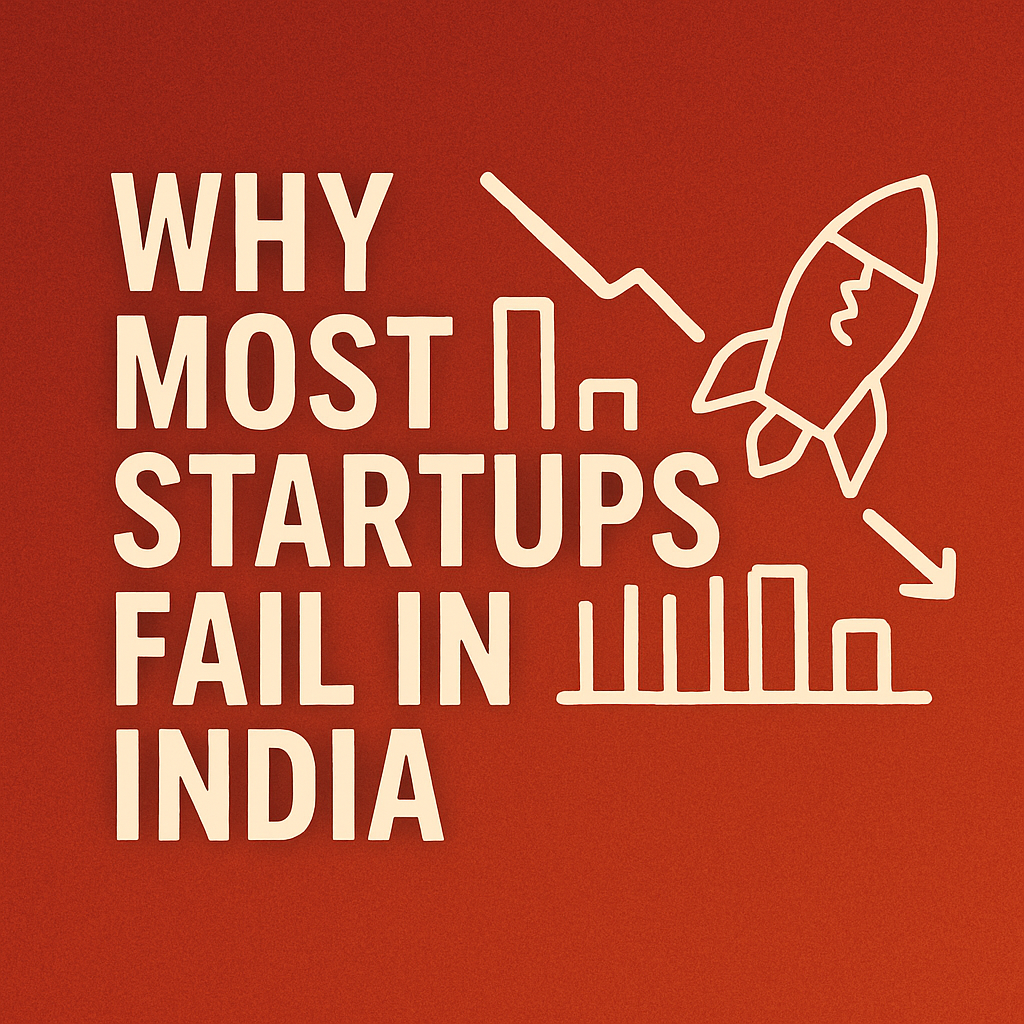Why Most Startups Fail in India: Key Challenges and Lessons
India’s startup ecosystem is one of the fastest-growing in the world, with thousands of new ventures emerging each year. However, despite the buzz, a significant number of startups fail within their first five years. According to industry reports, nearly 90% of startups in India shut down before achieving profitability or scalability. So, why do most startups fail in India? Let’s dive into the core reasons behind these failures and what entrepreneurs can learn from them.
Lack of Market Research and Product-Market Fit
One of the most common reasons for startup failure is launching a product or service without adequate market validation. Many founders build solutions based on assumptions rather than real consumer needs. Without a clear product-market fit, even the most innovative ideas struggle to gain traction.
Poor Financial Management
Startups often face challenges with cash flow management, budgeting, and funding allocation. Overspending on marketing, hiring, or infrastructure without achieving revenue milestones can quickly drain capital. Many startups also fail to secure follow-up funding due to unclear financial planning or unrealistic projections.
Inexperienced Leadership and Team Issues
Founders without prior business or leadership experience can struggle with decision-making and team management. A weak founding team or internal conflicts can lead to operational breakdowns, loss of vision, and low morale. A startup’s success heavily depends on a skilled, motivated, and cohesive team.
Scalability and Operational Challenges
Building a scalable business model is critical for long-term success. Many startups fail to plan for logistics, customer service, and technology infrastructure as they grow. Without scalability, customer dissatisfaction and operational bottlenecks can derail progress.
Regulatory and Bureaucratic Hurdles
India’s regulatory landscape can be complex and time-consuming. Issues like GST compliance, labor laws, and licensing requirements can overwhelm new businesses. Startups without legal support or understanding of these frameworks often get caught in bureaucratic red tape.
Lack of Differentiation and High Competition
In saturated markets, startups need a unique value proposition to stand out. Many ventures fail because they offer generic solutions or try to replicate existing models without adding real innovation. Without differentiation, attracting customers becomes a steep uphill battle.
Customer Retention and Poor User Experience
Acquiring users is only half the battle. Startups that ignore customer feedback, quality support, and intuitive UX often lose their user base to more attentive competitors. Retention is vital for building a loyal customer base and achieving sustainable growth.
Conclusion
While the failure rate among Indian startups is high, these challenges offer invaluable lessons for aspiring entrepreneurs. Success requires in-depth market understanding, solid financial planning, experienced leadership, and a clear value proposition. By learning from the mistakes of others and building resilient, adaptable models, startups can turn challenges into stepping stones toward success.
In India’s competitive startup ecosystem, knowledge, preparation, and execution are the true differentiators.



